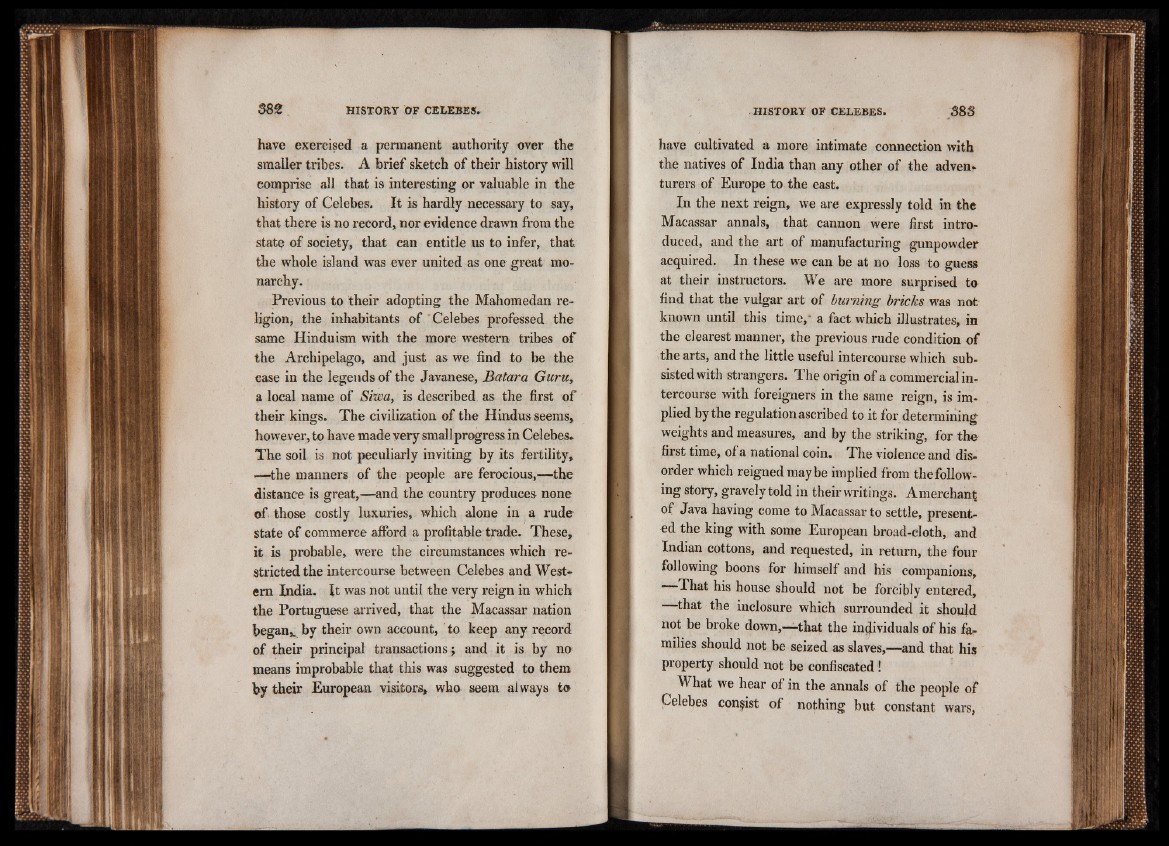
have exercised a permanent authority over the
smaller tribes. A brief sketch of their history will
comprise all that is interesting or valuable in the
history of Celebes. It is hardly necessary to say,
that there is no record, nor evidence drawn from the
state of society, that can entitle us to infer, that
the whole island was ever united as one great monarchy.
Previous to their adopting the Mahomedan religion,
the inhabitants of 'Celebes professed the
same Hinduism with the more western tribes of
the Archipelago, and just as we find to be the
case in the legends of the Javanese, Bator a Gurut
a local name of Siwa, is described as the first of
their kings. The civilization of the Hindus seems,
howe ver, to have made very small progress in Celebes.
The soil is not peculiarly inviting by its fertility,
—the manners of the people are ferocious,—the
distance is great,—and the country produces none
of those costly luxuries, which alone in a rude
state of commerce afford a profitable trade. These,
it is probable, were the circumstances which restricted
the intercourse between Celebes and Western
India. It was not until the very reign in which
the Portuguese arrived, that the Macassar nation
beganv by their own account, to keep any record
of their principal transactions ; and it is by no
means improbable that this was suggested to them
by their European visitors, who seem always to
have cultivated a more intimate connection with
the natives of India than any other of the adventurers
of Europe to the east.
In the next reign, we are expressly told in the
Macassar annals, that cannon were first introduced,
and the art of manufacturing gunpowder
acquired. In these we can be at no loss to guess
at their instructors. We are more surprised to
find that the vulgar art of burning bricks was not
known until this time,* a fact which illustrates, in
the clearest manner, the previous rude condition of
the arts, and the little useful intercourse which subsisted
with strangers. The origin of a commercial intercourse
with foreigners in the same reign, is implied
by the regulation ascribed to it for determining
weights and measures, and by the striking, for the
first time, of a national coin. The violence and disorder
which reigned maybe implied from the following
story, gravely told in their writings. A merchant;
of Java having come to Macassar to settle, presented
the king with some European broad-cloth, and
Indian cottons, and requested, in return, the four
following boons for himself and his companions,
—That his house should not be forcibly entered,
that the inclosure which surrounded it should
not be broke down,—that the individuals of his families
should not be seized as slaves,—and that his
property should not be confiscated!
What we hear of in the annals of the people of
Celebes consist of nothing but constant wars,